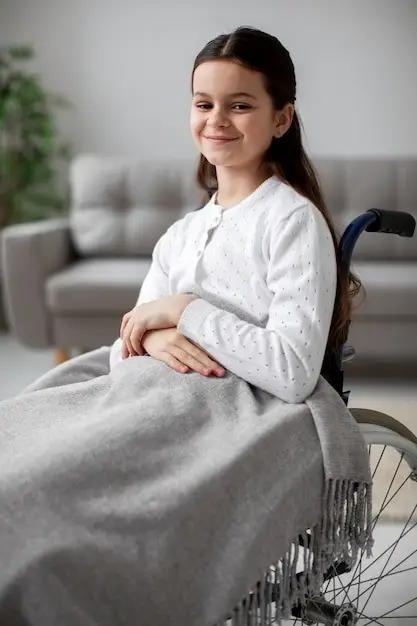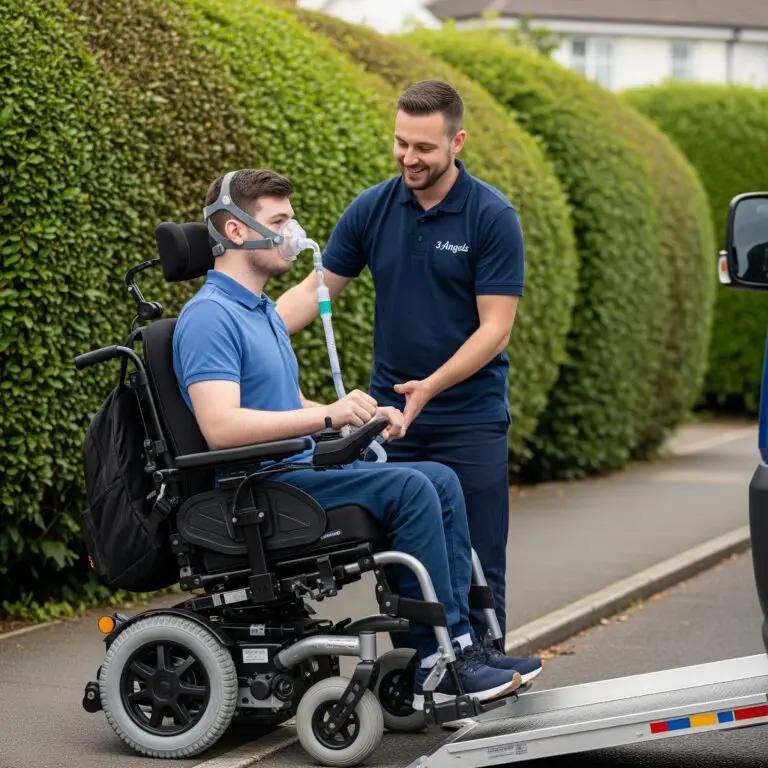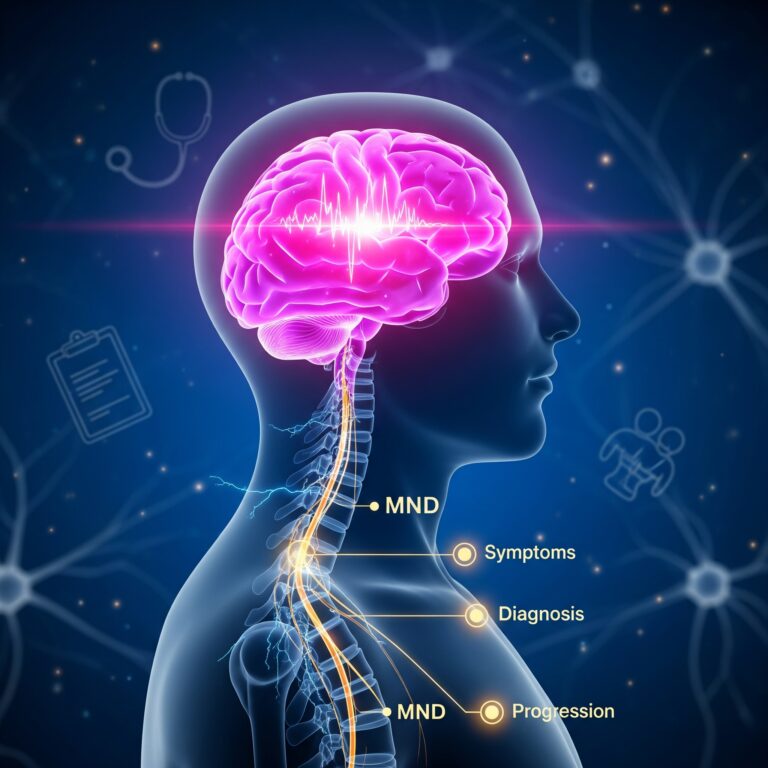Welcome to “Navigating Life with Motor Neurone Disease,” a comprehensive blog series from 3 Angels Complex Care designed to empower you with knowledge and support. In this first part, we lay the foundation, answering the crucial question: what exactly is Motor Neurone Disease (MND)?
Have you ever wondered about the incredible, yet often unseen, network of nerves that allows us to walk, talk, and even smile? These are our motor neurones, the body’s messengers, transmitting signals from our brain to our muscles. But what happens when this vital communication system begins to falter?
For families in the UK, especially those who may have just received a diagnosis, navigating the world of Motor Neurone Disease (MND) can feel overwhelming. At 3 Angels Complex Care, we understand that finding reliable information is the first step toward finding peace of mind. This guide is designed to help you understand what MND is, its different forms, and who it affects, offering clarity and reassurance from a team that is here to support you.
The Body’s Communication Breakdown
Imagine your brain is the command centre and your muscles are the workers. Your motor neurones are the telephone wires that carry instructions from the command centre to the workers, telling them to lift a cup, take a step, or speak a word. In an individual with Motor Neurone Disease, these “telephone wires” begin to degenerate and die. As the lines of communication break down, the muscles no longer receive the signals they need to function. This leads to progressive weakness, visible muscle wasting (atrophy), and eventually, paralysis.
A particularly challenging aspect of MND is that, for most people, their cognitive abilities and senses—like sight, hearing, and touch—remain intact. This means they are often fully aware of their physical changes, highlighting the importance of compassionate and empathetic care that respects their dignity.
The Many Faces of Motor Neurone Disease
While the term Motor Neurone Disease is an umbrella term, it encompasses several different types. Understanding these can help explain the varied experiences of individuals living with MND. The four main types recognised in the UK are:
Amyotrophic Lateral Sclerosis (ALS): The Most Common Form
ALS is the most prevalent type of MND, affecting both upper motor neurones (in the brain) and lower motor neurones (in the spinal cord). This dual impact leads to a mix of symptoms, including muscle weakness and stiffness. Early signs might be as simple as tripping more often or struggling to hold a pen, as seen in the story of our client, Liam, who first noticed a persistent weakness in his grip. ALS is also known as Lou Gehrig’s disease in other parts of the world.
Progressive Bulbar Palsy (PBP): Affecting Speech and Swallowing
This type primarily targets the motor neurones controlling the face, throat, and tongue. A person with PBP may first notice slurred speech or difficulty chewing and swallowing. The challenges often start here before spreading to the limbs, making early support from a speech and language therapist crucial.
Progressive Muscular Atrophy (PMA): Lower Motor Neurone Impact
PMA mainly affects the lower motor neurones. Symptoms often begin with muscle weakness, wasting, and twitching (fasciculation) in the hands or feet. A key feature of PMA is that symptoms can remain localised for years before spreading. While still a serious condition, it often has a slower progression than ALS.
Primary Lateral Sclerosis (PLS): A Rare Upper Motor Neurone Condition
PLS is the rarest type, affecting only the upper motor neurones. This leads to stiffness and muscle tightness (spasticity), typically beginning in the legs and affecting walking. Like PMA, PLS generally progresses more slowly, with speech and swallowing difficulties often emerging only in the later stages.
To help you visualise these differences, here is a simplified chart:
You can find more detailed information on the NHS website about the different types and symptoms of MND.
Who Is Affected by Motor Neurone Disease in the UK?
Motor Neurone Disease is a relatively rare condition, but it is not as uncommon as you might think. In the UK, it is estimated that around 5,000 adults are living with MND at any one time, with approximately six people receiving a diagnosis every day. While MND can affect adults of any age, from teenagers to those in their 80s, symptoms most frequently appear between the ages of 55 and 75.
There is a slight male predominance, with men being diagnosed more often than women, especially before the age of 65. The question of what causes MND remains largely a mystery, with most cases (90-95%) being sporadic, meaning there is no known family history. However, in a smaller number of cases (5-10%), MND is familial and can be inherited due to a faulty gene. The brilliant minds at the Motor Neurone Disease Association are leading groundbreaking research to uncover these causes and find a cure.
Compassionate Care Starts with Understanding
At 3 Angels Complex Care, we believe that understanding the basics of Motor Neurone Disease is the first step toward providing truly person-centred care. It’s about more than just managing symptoms; it’s about providing dignity, companionship, and empowerment to individuals like Liam and their families. Our compassionate team is expertly trained to support people with complex neurological conditions in the comfort of their own homes.
If you or a loved one is navigating a diagnosis of MND and exploring your care options, you don’t have to do it alone. We are here to listen, answer your questions, and tailor a care plan that fits your unique needs.
Would you like to learn more about how our specialised home care services can provide support and enhance quality of life for your family? Contact us today for a compassionate, no-obligation chat.
Continue your journey through our MND series: In Part 2: The MND Journey, we will delve into the typical progression of the disease, from early symptoms to navigating the diagnostic process and understanding the varied stages.

An experienced Registered Nurse with over two decades of dedicated service in complex care within the UK. Throughout her extensive career, Eleanor has provided compassionate and specialised support to countless individuals living with complex health conditions. Her insights are drawn from a deep understanding of patient needs and a commitment to empowering families with knowledge and high-quality care.



